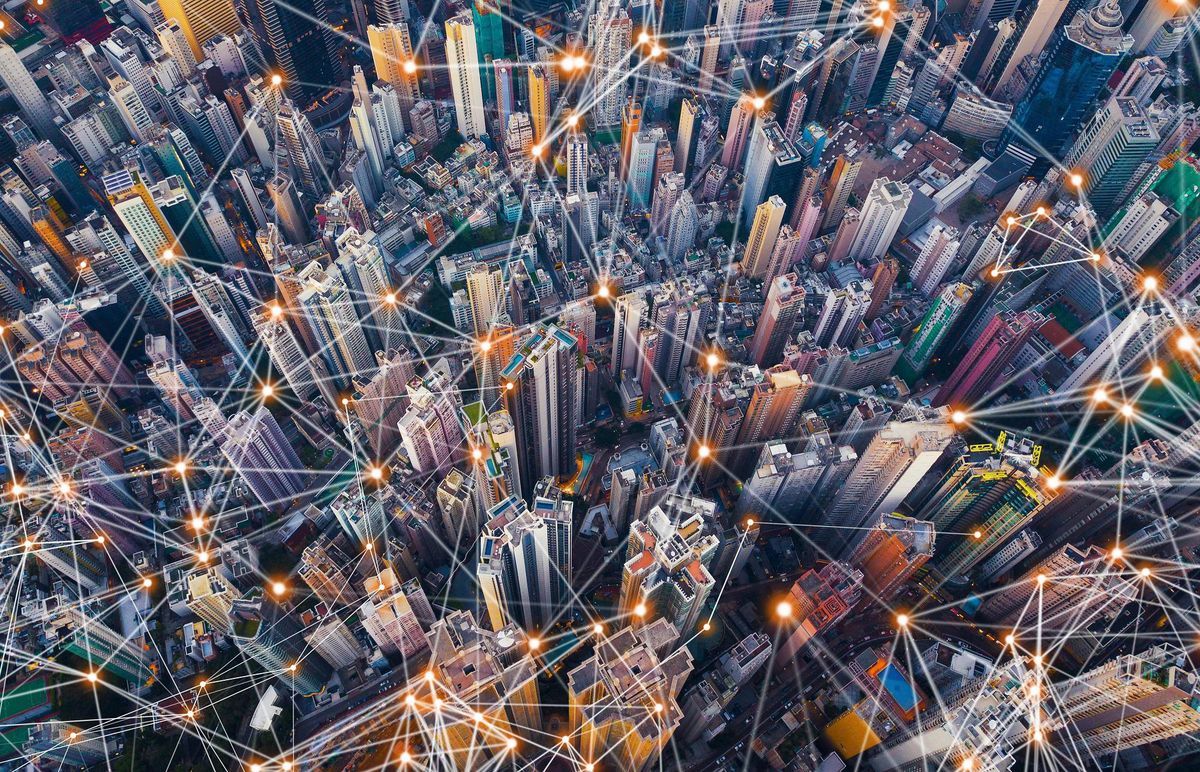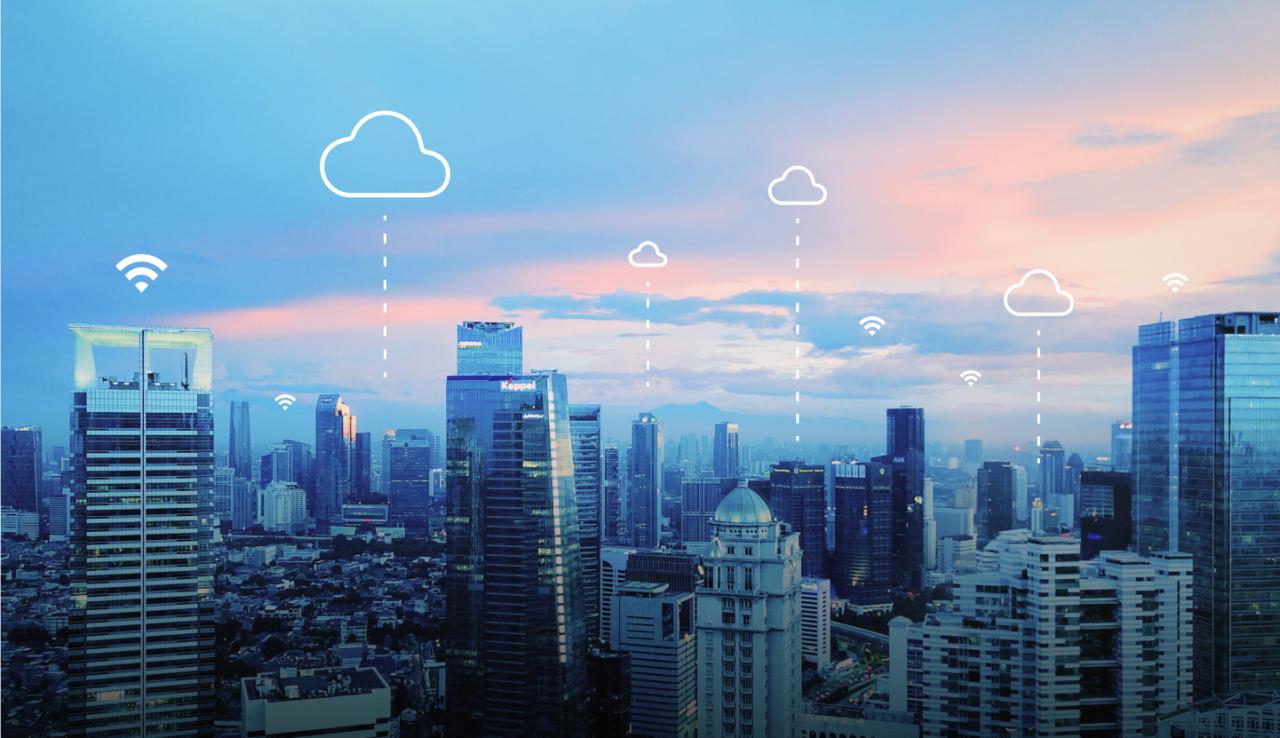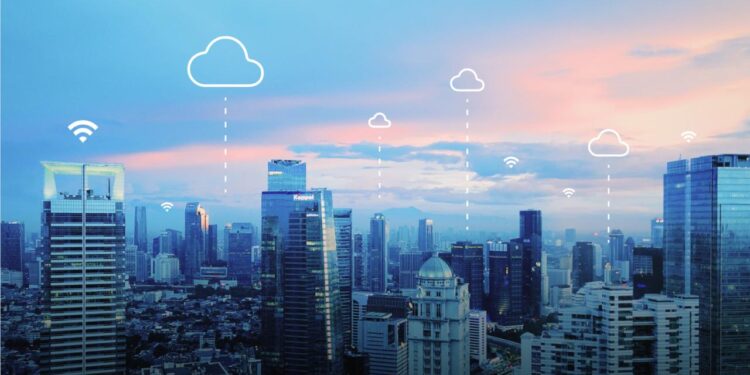Embark on a journey through the world of DigiLife Technology Trends in Smart Cities, where innovation meets urban development. As we delve into the realm of smart cities and cutting-edge technologies, prepare to be intrigued by the possibilities that lie ahead.
In this exploration, we will uncover the impact of DigiLife technology on urban living, highlighting its role in shaping the cities of tomorrow.
Overview of DigiLife Technology Trends in Smart Cities
DigiLife technology encompasses a range of digital solutions and innovations aimed at enhancing urban living experiences through the integration of smart technologies. These technologies are designed to improve the efficiency, sustainability, and overall quality of life in cities.Smart cities refer to urban areas that leverage technology to optimize various aspects of city life, such as transportation, energy usage, waste management, and public services.
The concept involves the use of data-driven solutions to make cities more livable, sustainable, and resilient in the face of challenges like rapid urbanization and climate change.DigiLife technology plays a crucial role in shaping the future of urban living by providing innovative solutions to complex urban challenges.
From IoT devices and sensors to data analytics and AI-driven systems, these technologies enable cities to become more efficient, connected, and responsive to the needs of their residents. By harnessing the power of digital technologies, smart cities can improve resource management, enhance public services, and create a more sustainable and inclusive urban environment.
Internet of Things (IoT) in Smart Cities
The Internet of Things (IoT) is revolutionizing smart city infrastructure by connecting various devices and sensors to collect and analyze data in real-time. This interconnected network allows cities to become more efficient, sustainable, and responsive to the needs of their residents.
Key Applications of IoT in Urban Environments
IoT is being utilized in smart cities for a wide range of applications, including:
- Smart Transportation: IoT enables real-time traffic monitoring, smart parking solutions, and optimization of public transportation systems.
- Smart Energy Management: IoT helps in monitoring and controlling energy consumption, optimizing grid operations, and promoting renewable energy sources.
- Smart Waste Management: Sensors in trash bins can signal when they are full, optimizing waste collection routes and reducing operational costs.
- Smart Water Management: IoT sensors can detect leaks in the water supply system, monitor water quality, and promote efficient water usage.
Benefits and Challenges of Implementing IoT in Smart Cities
- Benefits:
- Improved Efficiency: IoT enables better resource allocation, reduces operational costs, and enhances service delivery in smart cities.
- Enhanced Sustainability: By monitoring and managing resources more effectively, IoT contributes to environmental sustainability in urban areas.
- Increased Safety: IoT applications help in enhancing public safety through real-time monitoring of critical infrastructure and emergency response systems.
- Challenges:
- Data Security and Privacy Concerns: The vast amount of data collected by IoT devices raises concerns about data security and privacy protection.
- Interoperability Issues: Ensuring seamless communication and integration among diverse IoT devices and platforms can be a challenge in smart city deployments.
- Cost of Implementation: The initial investment required for deploying IoT infrastructure in smart cities can be substantial, posing a financial challenge for some municipalities.
Artificial Intelligence (AI) in Smart City Development

Artificial Intelligence (AI) is playing a pivotal role in the development of smart cities, revolutionizing the way urban operations are managed and enhancing the overall quality of life for residents.
AI Applications in Enhancing Urban Services
AI applications in smart cities are diverse and impactful, ranging from traffic management systems to waste management solutions. For example, AI-powered traffic control systems can optimize traffic flow, reduce congestion, and improve road safety. Additionally, AI algorithms can analyze data from sensors to optimize waste collection routes, leading to more efficient and environmentally friendly waste management practices.
Ethical Implications of AI Deployment in Smart Cities
The deployment of AI in smart cities raises ethical concerns regarding privacy, security, and transparency. As AI systems collect and analyze massive amounts of data, there is a risk of infringing on individual privacy rights. Moreover, biases in AI algorithms can lead to discriminatory outcomes, highlighting the importance of ensuring fairness and accountability in AI decision-making processes.
Sustainable Energy Solutions in Smart Cities

As smart cities continue to evolve, the integration of sustainable energy solutions has become a key focus for urban development. These innovative technologies not only help reduce carbon emissions but also promote energy efficiency and resilience in the face of climate change.
Innovative Energy Technologies in Smart City Projects
- Solar Power: Solar panels are being integrated into buildings, streetlights, and public spaces to harness the power of the sun and generate clean electricity.
- Wind Turbines: Wind energy is being harnessed through the installation of turbines in strategic locations within smart cities to generate renewable power.
- Smart Grids: Advanced grid systems are being implemented to optimize energy distribution, reduce wastage, and improve overall efficiency.
Comparison of Different Renewable Energy Sources in Urban Settings
- Solar vs. Wind: Solar energy is more predictable and easier to integrate into existing infrastructure, while wind energy is more variable but can be more cost-effective in certain locations.
- Hydroelectric vs. Geothermal: Hydroelectric power relies on water flow to generate electricity, while geothermal energy utilizes heat from the earth's core for sustainable power generation.
Impact of Sustainable Energy Solutions on Environment and Economy
- Environmental Benefits: By reducing reliance on fossil fuels, sustainable energy solutions help lower greenhouse gas emissions and combat climate change.
- Economic Advantages: Investing in renewable energy creates jobs, reduces energy costs in the long run, and enhances the overall economic competitiveness of smart cities.
Last Recap

Concluding our discussion on DigiLife Technology Trends in Smart Cities, we have unveiled a glimpse into the future of urban landscapes. From IoT advancements to AI integration and sustainable energy solutions, the possibilities are endless. Embrace the digital revolution and witness the transformation of cities into smarter, more efficient hubs of innovation.














